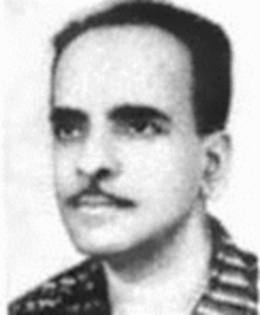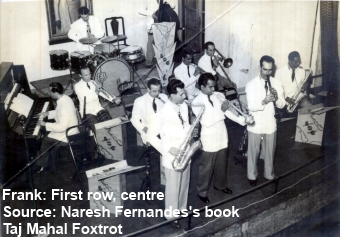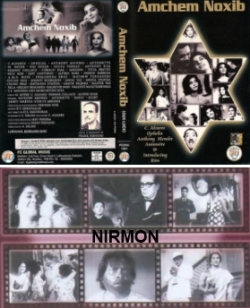Composer of timeless music
 One Sunday evening in Bombay somewhere in 1963, my family and I were seated on one of the tiered stone steps at the open-air theatre in Victoria Gardens, waiting for the tiatr to begin. (Yes, once upon a time in Bombay, you could enjoy a tiatr alfresco, in the midst of greenery, beneath the stars.)
One Sunday evening in Bombay somewhere in 1963, my family and I were seated on one of the tiered stone steps at the open-air theatre in Victoria Gardens, waiting for the tiatr to begin. (Yes, once upon a time in Bombay, you could enjoy a tiatr alfresco, in the midst of greenery, beneath the stars.)
An announcement over the loudspeakers said they would be playing the songs from the newly released Konkani film Amchem Noxib, and suddenly, the chatter all around stopped, like magic.
It was then, as a little schoolgirl, that I first experienced the captivating sweetness of the music of the great Goan Frank Fernand. More than five decades later, even today, the work of this talented music composer still continues to cast a spell on Goans across the world.
The blossoming of a legendary Goan musician
Frank was born on 3 May, 1919, in Curchorem, in South Goa’s mining belt. He was christened Franklin Fernandes, but chose to use Frank Fernand as his professional name. Like most students of Portuguese-run parish schools, he learnt music at a very young age. His music teacher in school, Diego Rodrigues, taught him western classical music besides training him to play the violin and trumpet.
Frank took his first steps as a musician when still a young lad by joining the village band as a trumpeter, playing at village feasts, weddings, and funerals. This brief stint introduced him to different genres of music. But what enriched his musical sensibilities the most was his exposure to jazz.
He was so fascinated by the excitement, the newness, and the energy of jazz music that he decided he would make a living in the entertainment industry as a jazz musician. So in 1936, at the tender age of 17, he moved to Bombay like many other Goan youngsters, with dreams of joining one of the leading dance bands there.
In those days, Bombay was a more liberal, multicultural city, and a jazz hotspot with a thriving nightclub scene. The entire stretch in South Bombay from Marine Drive to Churchgate and further south to the Taj Mahal Hotel glittered with restaurants, nightclubs and hotels that had live bands to entertain their patrons. After sundown, shimmering signboards with names like The Ritz, Gaylord, Volga, The Mandarin, Alibaba, Ambassador Hotel, and Astoria Hotel, added to the glamour and magic of the night.
The ambience inside the fancy ballrooms was formal and sophisticated, yet lively, and Bombay’s night life scene was like an extension of that in other major port cities of the world such as New York, New Orleans, London, Paris, and Beirut.
Elite ballroom patrons often got to enjoy performances by international jazzmen like Leon Abbey, Ken Mac, and Teddy Weatherford (who had played alongside the great Louis Armstrong). But the Bombay jazz bands to whose music they swayed were staffed mainly by trained musicians of Goan heritage with rich experience in playing instruments like the violin, guitar, piano, trumpet, and saxophone.
Some of the prominent Goans besides Frank Fernand who made their mark in Bombay’s golden jazz era (from the 1930s to the 1950s) included Chic Chocolate, Micky Correa, Josic Menzie, Johnny Baptist, and Chris Perry.
So imagine my surprise when I learnt that as a newcomer to Bombay, Frank had first worked as a salesman at the Bata shoe shop in Mazagaon, not far from where I grew up, though of course that was much before I was born. Every day after work, he diligently practised playing his trumpet, and on amateur nights, he played at Green’s Hotel, where the Tower wing of the Taj Mahal Hotel now stands. That was where aspiring musicians, most of them migrant Goans, performed hoping some well-known band leader would spot their talent and hire them.
Soon, young Frank’s trumpet-playing skills attracted job offers from prominent jazz musicians like George Theodore, Rudy Cotton, Micky Correa, and Teddy Weatherford.
 For a while, in the 1940s, Frank played at Mussoorie’s Savoy Hotel in Rudy Cotton’s band. In 1946, at the age of 27, listening to a lecture by Mahatma Gandhi, who happened to be passing through Mussoorie then, inspired him to give an Indian flavor to his jazz music. He was able to fulfill this desire a couple of years later when like many Goan jazz musicians he made the transition from ballroom dance bands to the studios of Bollywood.
For a while, in the 1940s, Frank played at Mussoorie’s Savoy Hotel in Rudy Cotton’s band. In 1946, at the age of 27, listening to a lecture by Mahatma Gandhi, who happened to be passing through Mussoorie then, inspired him to give an Indian flavor to his jazz music. He was able to fulfill this desire a couple of years later when like many Goan jazz musicians he made the transition from ballroom dance bands to the studios of Bollywood.
The Bollywood years
By the early 1950s, Prohibition began to take a toll on Bombay’s night life and consequently, the demand for jazz bands began to fall. But even as one door shut, another opened up.
Around the same time, Bollywood music directors began to consider engaging large orchestras with instruments playing in harmony. Going beyond traditional instruments like dholaks, tablas, flutes, and sitars, they now wanted to add the sounds of the piano, and western brass, string, and percussion instruments to their musical compositions. And guess who stepped in to fulfill this need? Scores of humble but super-talented migrant Goan musicians from Portuguese Goa.
While the big-name music directors composed the melodies of songs, they could not compose orchestral music which was more complex or conduct orchestras. So Goans not only played in Bollywood orchestras, but also taught others to read sheet music, and worked as conductors, assistant music directors, and arrangers for all the leading music directors of Hindi cinema. As arrangers, they composed the introductory music and the interludes between the verses of a song, besides writing the musical scores for every musician in the orchestra.
Not just that, they also leveraged their expertise in western music to introduce elements of jazz and swing into traditional Bollywood music.
So now you know whom we need to thank for a slew of unforgettable, mesmerising Bollywood numbers like Baar Baar Dekho (from China Town), Bekaraar Karke Hume Yun Na Jaiye (from Bees Saal Baad), Hey Babu Yeh Hai Zamaana Tera (from Bhagam Bhag), and Shola Jo Bhadke (from Albela), to name just a few. All these have the unmistakable stamp of the jazz flair of Goan musicians.
Frank Fernand got his first break in Bollywood in 1948 at the age of 29 when Shanker-Jaikishen hired him to play the violin and trumpet for their films including “Barsaat“. He then went on to work under S. D. Burman, Anil Biswas, Roshan, Kishore Kumar, C. Ramchamdra, and Kalyanji Anandji.
Frank contributed his musical talents to over 70 Bollywood films. But here’s a small slice of his extensive filmography:
- Music conductor: Don, Zanjeer, Victoria No. 203, Safar, Upkar…
- Assistant music director: Waqt, China Town, Johny Mera Naam, Sachaa Jhutha, Phool aur Patthar…
- Arranger: Kora Kagaz, Kab? Kyon? Aur Kahan?,..
Unfortunately, most Bollywood music fans may not have heard of Frank Fernand, as the names of music conductors, assistants, and arrangers, only fly past in fine print in the credits at the end of a film. But which true blue Goan hasn’t heard his name? For Frank Fernand had gone a step further than other Goan jazz musicians. He produced and composed music for films in his mother tongue Konkani – Amchem Noxib (Our Fate) in 1963, and Nirmon (Destiny) in 1966.
The Konkani Connection
 Like the films themselves, all the songs of Amchem Noxib and Nirmon went on to become huge hits and are evergreen favourites. Who can ever tire of listening to Mollbailo dou (featuring C. Alvares and Rita Lobo), Bencdaita Pai (featuring Anthony Mendes and Antonette), Claudia, and Dol mhojea bai, nid mhojea bai? For his film Nirmon, Frank received the Certificate of Merit for regional films from the hands of the then Prime Minister Indira Gandhi. He had also composed the music for a third Konkani film, Mhoji Ghorkarn, and in the eighties, staged a tiatr – Bekar Patrao (Idle Baron) with a grand, ten-piece orchestra.
Like the films themselves, all the songs of Amchem Noxib and Nirmon went on to become huge hits and are evergreen favourites. Who can ever tire of listening to Mollbailo dou (featuring C. Alvares and Rita Lobo), Bencdaita Pai (featuring Anthony Mendes and Antonette), Claudia, and Dol mhojea bai, nid mhojea bai? For his film Nirmon, Frank received the Certificate of Merit for regional films from the hands of the then Prime Minister Indira Gandhi. He had also composed the music for a third Konkani film, Mhoji Ghorkarn, and in the eighties, staged a tiatr – Bekar Patrao (Idle Baron) with a grand, ten-piece orchestra.
During the last years of his life Frank Fernand suffered from Parkinson’s disease. When he passed away in Mumbai on 1 April 2007 a few weeks before his 88th birthday, he was mourned not just by his wife Maggie, daughters Elfin, Doris, and Larissa, and son Max, but Goans around the world.
The great Goan Frank Fernand, other celebrated Goan jazzmen, and a multitude of unnamed and faceless Goan musicians have made an immense contribution towards Konkani and Bollywood music. I end my small tribute to them with these unforgettable gems composed by the remarkable Frank Fernand himself.
Viva Goa!

Thank you for this… really do appreciate the time and energy you have put into writing this…
It was entirely my pleasure, Max, to write a small tribute to a great Goan like Frank Fernand!
Enlightening write up on Frank Sir. Many are unaware of the contribution of Frank Sir…
You’re so right, Nickey. What’s so sad is that even among fellow Goans, the immense contribution of this great son of Goa to Goan music is not appreciated as much as it should. This was also one of the reasons for putting the spotlight on the great Frank Fernand in this humble post of mine.